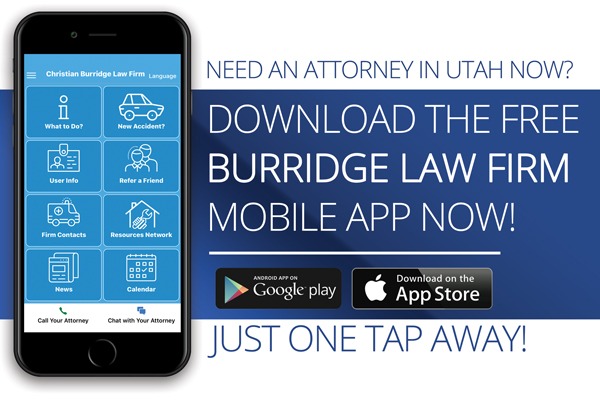The moments following the unexpected loss of a loved one can feel overwhelming. Understanding the essential steps to take helps protect your family’s rights while honoring your loved one’s memory. This guide outlines crucial actions to take during this difficult time.
Immediate Steps After Death
The first hours and days after losing a loved one require attention to several urgent matters. Begin by obtaining a death certificate, which serves as the official documentation of your loved one’s passing. You’ll need multiple copies for various purposes, including insurance claims, closing accounts, and legal proceedings.
Contact your loved one’s employer to understand any final paycheck, benefits, or insurance coverage. Many employers provide life insurance or death benefits that can help with immediate expenses. Request written documentation of all available benefits and coverage.
Secure your loved one’s personal belongings, especially any items related to the cause of death. This might include medication bottles in medical malpractice cases or damaged personal items from accident scenes. These items could provide crucial evidence for your legal case.
Documenting the Circumstances
Start creating a detailed timeline of events leading to your loved one’s death. Write down everything you remember while memories remain fresh. Include dates, times, locations, and names of anyone involved or present. This information proves invaluable for both insurance claims and legal proceedings.
Keep all documents related to the death, including: Medical records showing treatments received Hospital bills and receipts Accident reports or police documentation Insurance correspondence Witness contact information Photographs of accident scenes Text messages or emails about the incident
Create a dedicated file for organizing these materials. Consider making digital copies as backup documentation.
Medical Records and Evidence
Request complete medical records from all healthcare providers who treated your loved one. These records should cover both the immediate cause of death and any related previous conditions or treatments. Medical records often provide crucial evidence linking negligent actions to the death.
If medical malpractice might have contributed to the death, obtaining records quickly becomes especially important. Some facilities might become less cooperative once they suspect legal action. Having an attorney request records often ensures more complete documentation.
Insurance and Financial Matters
Notify all insurance companies that might provide coverage. This includes: Life insurance providers Health insurance companies Auto insurance carriers in vehicle-related deaths Homeowner’s insurance for property-related incidents Workers’ compensation for workplace deaths
Keep detailed records of all insurance communications. Take notes during phone calls and save all written correspondence. Don’t provide recorded statements or sign documents without legal review.
Estate Administration
Determine whether probate proceedings become necessary. This depends on how your loved one held their assets and the total value of their estate. Some states require probate for wrongful death claims, while others allow direct family claims.
If needed, initiate probate proceedings and obtain necessary court appointments. This establishes legal authority to handle estate matters and pursue wrongful death claims. Consider consulting both probate and wrongful death attorneys to understand how these proceedings interact.
Supporting Documentation
Gather documents demonstrating your loved one’s value to the family: Employment records showing income and benefits Tax returns documenting earnings history Education and training certificates Professional licenses or certifications Awards or recognition Community involvement records Family photographs and videos
This documentation helps establish both economic and non-economic losses in wrongful death claims.
Professional Support
Seek appropriate professional support during this difficult time:
Legal counsel guides you through wrongful death claims while protecting your rights. Early representation helps preserve evidence and meet legal deadlines.
Grief counselors provide emotional support and coping strategies. Many families find professional counseling particularly helpful when dealing with sudden, traumatic loss.
Financial advisors help manage immediate expenses and plan for future needs, especially when family income changes significantly.
Understanding Time Constraints
Legal deadlines, called statutes of limitations, restrict how long you have to file wrongful death claims. These deadlines vary by state and circumstance. Some situations, particularly those involving government entities, have very short notice requirements.
Missing legal deadlines can permanently bar your right to compensation. Don’t delay consulting legal counsel, even if you’re unsure about pursuing a claim.
Taking Action Today
Our experienced wrongful death attorneys understand the challenges your family faces. We provide comprehensive support during this difficult time:
Immediate Assistance
✓ 24/7 Legal Guidance ✓ Evidence Preservation ✓ Insurance Handling ✓ Document Collection ✓ Family Support ✓ Free Consultation
Our Commitment to You
We handle all legal aspects while you focus on your family:
- Case Investigation
- Evidence Gathering
- Expert Consultation
- Claim Filing
- Settlement Negotiation
- Court Representation
Start Your Journey to Justice
Let our experienced team help protect your family’s rights:
- Free Case Evaluation
- No Obligation
- Home/Hospital Visits
- Compassionate Support
- Proven Results
- No Fee Unless We Win
Contact Us Now
Don’t face this difficult time alone. Our caring team provides the guidance and support your family needs:
Call our 24/7 support line Complete our secure online form Request a personal consultation Access immediate assistance
Your family deserves justice and support. Contact us today to protect your rights and honor your loved one’s memory.
Disclaimer: This information provides general guidance only and does not constitute legal advice. Each situation presents unique circumstances. Consult qualified legal counsel for specific guidance.



